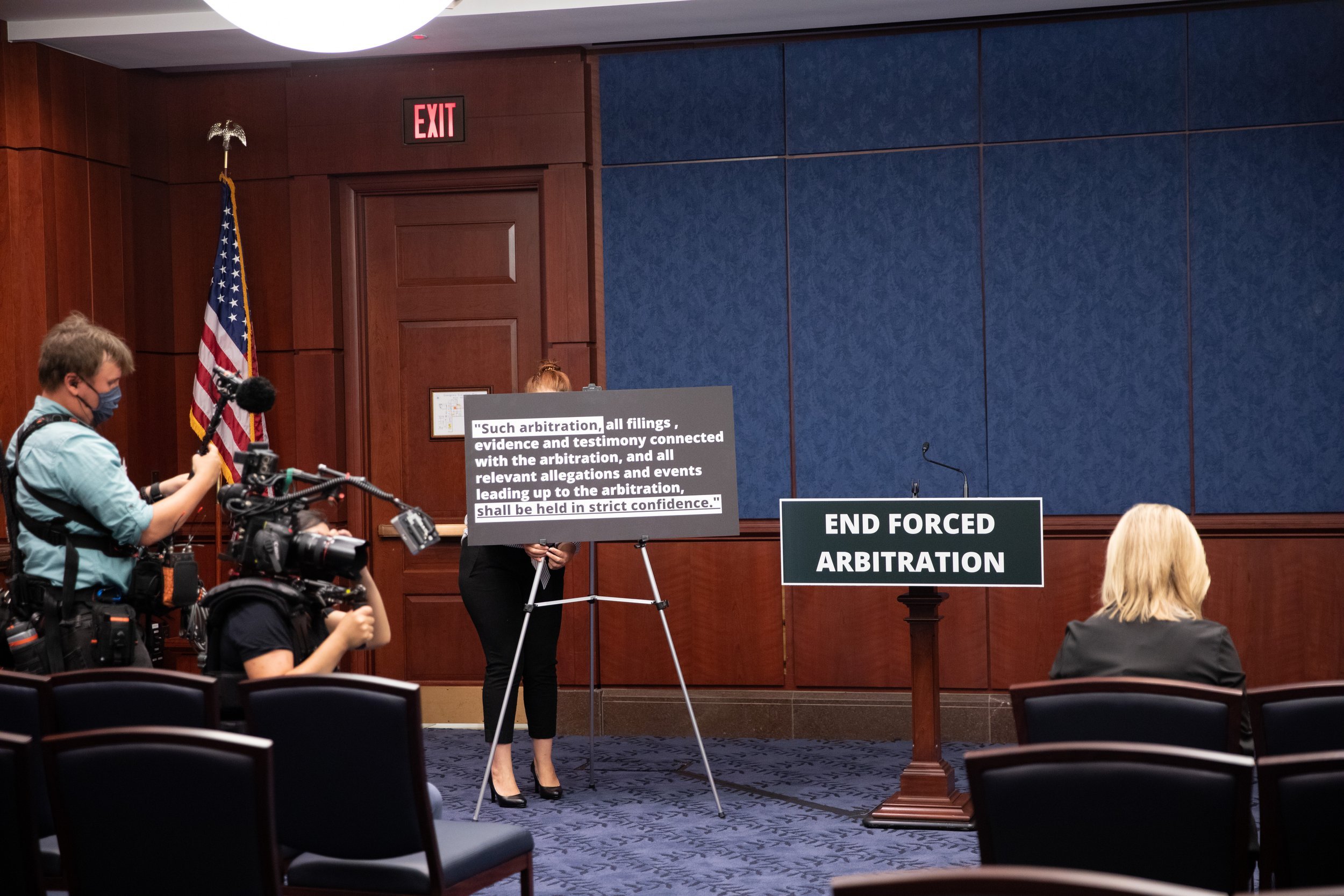
54% of women reported being sexually touched against their will in the workplace, with 95% of their abusers going unpunished after reporting it.
What your company can do right now •
What your company can do right now •
Take this language and bring it to your human resources department right now.
How your company can change right now.
Lift Our Voices has spearheaded the passage of two bipartisan federal laws to prevent workplace toxicity: the Ending Forced Arbitration of Sexual Assault and Sexual Harassment Act & the Speak Out Act. Several states have also expanded the rights of workers to speak out about toxic behavior. To enforce these new laws and make your workplace safer for all, educate yourself and your employees with our free resources below.
What is Workplace Toxicity
EXAMPLES:
RACE
GENDER
AGE
DISABILITY
SEXUAL ORIENTATION
RELIGION
HARASSMENT BECOMES UNLAWFUL WHERE:
1) Enduring the offensive conduct becomes a condition of continued employment.
OR
2) The conduct is severe or pervasive enough to create a work environment that a reasonable person would consider intimidating, hostile, or abusive.
Petty slights, annoyances, and isolated incidents (unless extremely serious) will not rise to the level of illegality. To be unlawful, the conduct must create a work environment that would be intimidating, hostile, or offensive to reasonable people.
Offensive conduct may include, but is not limited to, offensive jokes, slurs, epithets or name calling, physical assaults or threats, intimidation, ridicule or mockery, insults or put-downs, offensive objects or pictures, and interference with work performance.
Harassment can occur in a variety of circumstances, including, but not limited to, the following:
The harasser can be the survivor's supervisor, a supervisor in another area, an agent of the employer, a co-worker, or a non-employee.
The survivor does not have to be the person harassed, but can be anyone affected by the offensive conduct.
Unlawful harassment may occur without economic injury to, or discharge of, the survivor.
Anti-discrimination laws also prohibit harassment against individuals in retaliation for filing a discrimination charge, testifying, or participating in any way in an investigation, proceeding, or lawsuit under these laws; or opposing employment practices that they reasonably believe discriminate against individuals, in violation of these laws.
Source: The US Equal Employment Opportunity Commission (EEOC)
Support Us •
Support Us •
“During my time at Google, I led one of the largest employee walkouts globally, to protest forced arbitration clauses in workers’ contracts. I support Lift Our Voices efforts to make sure all disenfranchised groups are protected from being silenced about toxic workplace environments."
— TANUJA GUPTA

Because every worker deserves a voice.
The work continues with your help, one person, one leader, one organization at a time.



